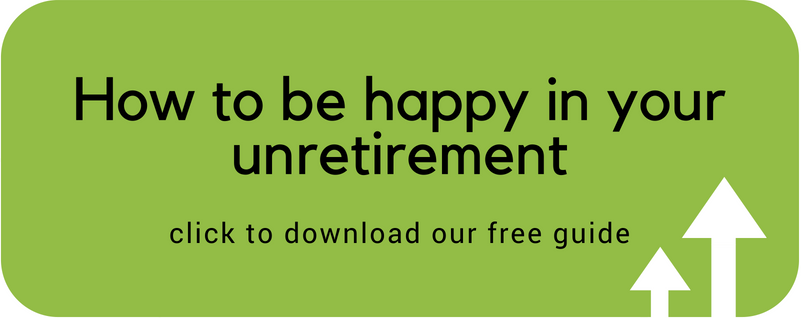Why you shouldn’t just be “filling time” in retirement
11 October 2018 By Victoria Tomlinson

I recently came across this article, entitled Wealthy enough to retire; too bored to stay retired, by Rob Walker in the Seattle Times. The piece offers some really great solutions to what Walker describes as “the most enviable workplace dilemma of all time”.
While it’s all really interesting, for me the piece completely misses the point.
The author gives suggestions for things to “fill the time” – and they’re all valid suggestions – but what’s really missing is that this is a golden opportunity, not something to be borne. It all feels a bit hopeless. Still we’re talking about the old chestnut of boredom in retirement.
Walker talks about the joy of dabbling but to my reading, the subject of the piece has another 20 years or so. He’s sold a profitable business. He can do anything. Why should he have to dabble?! That feels like settling to me.
Walker suggests looking for temporary freelance gigs, hiring yourself out as a coach and looking for work through an executive search firm. All good advice, of course but he’s got it all the wrong way round. Before he does any of this, the poor chap should find out where his passion is. What gets him excited? What leaves him flat? My guess is that the list of suggestions will leave him as flat as they did me when I read it and he’ll be back to boredom in retirement. The problem is that the tips simply don’t start with what he wants.

If you’re reading this, hapless Seattle unretiree, think long and hard about what you love. That and only that will give you the key to enjoying your unretirement.
You need to think about what really floats your boat. What gave you purpose in your corporate career? Or even didn’t (that can be just as helpful when focusing on next steps)? What gives you a real kick – mentoring young people, helping companies with tricky financial issues, doing research, spotting the next big thing? A few people I have been mentoring have had passions for helping in Africa – one is setting up a school, another has set up a social enterprise to get clean water to villages. Don’t be narrow in your thinking. Do you want to mentor young people? Does the idea of helping companies grow fill you with excitement?
Then once you have your passion, then think about what you can bring to the party. What are your skills and how do you want to use them? Another member of ours said they hate cruelty to animals but eventually said that setting up or running a rescue centre wasn’t them. They were better at raising the money to help others do this. Be realistic about where you add the most value.

As an entrepreneur you should well know how to identify issues and find solutions. You already have a considerable amount to bring to the table.
To my mind, much better advice would have been to to suggest focusing on achieving a specific goal, with a timeframe. What could he achieve in 15 or more years? A lot more than “dabbling” I imagine. Yes, time with family and time to relax is important, of course, so ringfence these but only once you’ve really focused and thought about your priorities will a plan start to evolve.
He may start a business, be a consultant, coach, help a charity or even set up a charity, but this time he will have a sense of purpose informing what he does and a clear direction in which to move forward. Whatever he does, he absolutely shouldn’t just ‘dabble’ because he (and you) will find this as unsatisfying as he is finding his leisure time right now.
If you are similarly struggling with boredom in retirement, let us help you. Become a member and we’ll help you sort out your thoughts and passions and create a realistic plan. If you can make it, join us at our skills exchange conference in Leeds on 20 November. Meet tech entrepreneurs, charities and headhunters all looking for people with skills and come away buzzing with ideas and contacts for an exciting unretirement.



